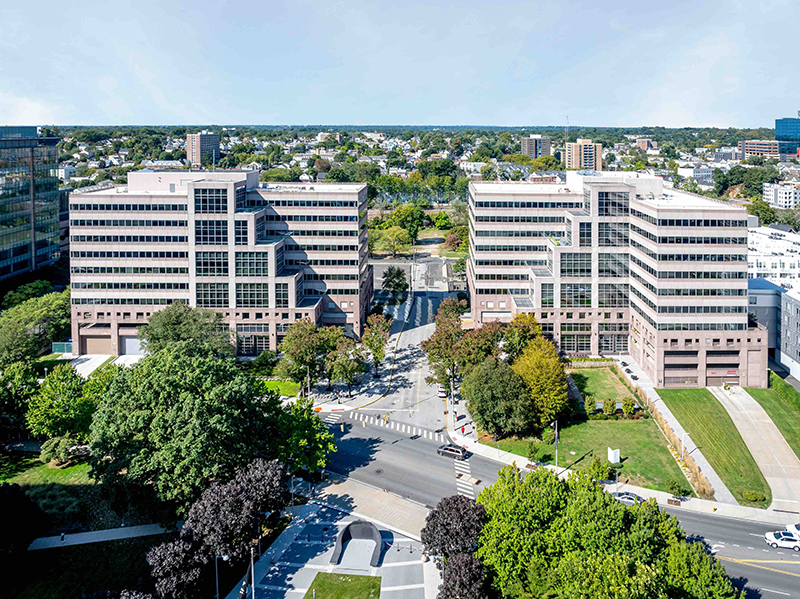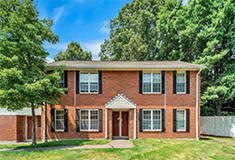News:
Connecticut
Posted: September 18, 2007
Investors remain focused on Connecticut apartment opportunities
Investors continue to demonstrate interest in the Connecticut multifamily market despite the recent capital markets shakeup and fallout in the subprime mortgage market. While investment sales velocity has slowed, the decline is due almost entirely to changes in the lending environment, as multifamily investors remain in the market. Some risk premium is returning to real estate, with cap rates expected to rise by an average of 20 to 50 basis points over the next several months. Higher quality apartment properties in strong Connecticut markets, and those with assumable or seller financing, will be affected the least. While the lending environment has tightened, the supply/demand balance across commercial real estate sectors remains relatively healthy. Additionally, higher borrowing costs and more stringent underwriting requirements will make it difficult for developers to move forward with some planned projects, further supporting space fundamentals.
Moderate job growth, higher mortgage rates and tighter lending standards will drive renter demand in the near term in Connecticut. As ARMs adjust and mortgage payments become unaffordable, many homeowners will return to the rental market. Competition for renters has increased in markets where condo/single-family investors were most active, but new apartment development remains moderate and vacancy will remain in a healthy range. In the near term, increasing supply of vacant homes and the return of conversion projects to the rental market will put some upward pressure on vacancy, though the net effect of the conversion trend will remain a positive for apartments.
Multifamily transaction velocity remains healthy throughout the state of Connecticut. In 2006, 5,617 units traded for $689,781,646. So far this year, 4,059 units have traded for $412,674,650. The price per unit has remained steady at approximately $100,000 in 2007, while the price per s/f has hit an estimated $120. The gap between buyers' and sellers' expectations appears to be narrowing, which will keep velocity at healthy levels through the end of the year.
In New Haven, operating fundamentals remain solid. The central business district is recording solid rent growth, particularly among redeveloped, mixed-use assets. The Ninth Square project, a mixed-use development comprised of a retail space and residential units, is in high demand among residents. On College and George Sts., another mixed-use project, including 220-plus residential units with 50,000 plus s/f of retail situated on 2.5 acres, is in the works. The 1.5-acre Shartenberg site on Chapel and State Sts., with 420 residential units and first floor retail, is also being developed. New Haven's Long Wharf area is also being revitalized with several new development projects, including the six-acre Coliseum site, which would incorporate the Long Wharf Theater on two acres with the balance being a dense, mixed-use site with first floor retail and office and residential space on the upper floors.
Stamford, which boasts a healthy amount of office product and benefits from its accessibility to New York City, is also generating investor and tenant demand. As a result, some new modern apartment projects are being developed in the city. The Trump Parc Tower project, a 37-story 177-unit luxury condominium tower with a 3,500 s/f retail component, is in the pipeline. The glass tower has a modern, sleek design and is to be built on a half acre parcel at the corner of Broad St. and Washington Blvd.
While shifts in the capital markets may impact immediate sales velocity, the long term prospects for apartment investment in Connecticut remain strong. Sound fundamentals will help to sustain investors' interest moving into 2008. Furthermore, with a healthy supply/demand balance and expectations for continued rent growth, liquidity is forecast to return to the market well ahead of the troubled residential sector. Higher quality assets in strong Connecticut submarkets, and those with assumable or seller financing, will be affected the least. Marketwide, while increased borrowing costs and limited price appreciation will put upward pressure on cap rates, a dramatic correction is not expected.
Now more than ever, it is imperative to rely upon a real estate investments services firm that has 36 years of experience negotiating the acquisition and disposition of properties. Buyers and sellers in Connecticut can maximize the value of their assets by tapping into Marcus & Millichap's nationwide marketing platform.
Steve Witten is a senior investment associate in Marcus & Millichap's New Haven office.
Tags:
Connecticut
MORE FROM Connecticut
CBRE brokers sale of Stamford Towers - 326,468 s/f Class A office
Stamford, CT The CBRE team of Jeff Dunne, Steve Bardsley, and Travis Langer, in collaboration with David Block, completed the sale of Stamford Towers, located at 680 & 750 Washington Blvd. CBRE represented the seller, CBRE Investment Management, and procured the buyer, a joint venture of Lamar Companies

Quick Hits










.png)